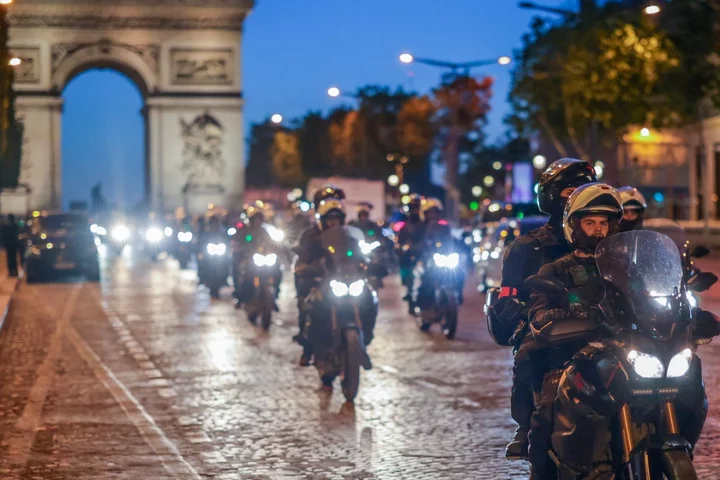
Over €1 million donated to French police officer who killed teenager in ‘scandalous’ fundraiser
More than €1 million (£860,000) has been raised for the family of a French police officer who shot dead a teenager at a traffic stop, an act that sparked riots across the country. That is far more than a similar campaign for the family of the boy killed. The online fundraiser started by Jean Messiha, an independent right-wing populist and former adviser to Marine Le Pen, has attracted donations from more than 52,000 people, while a fund set up by the policeman’s colleagues has raised around €60,000. The grandmother of Nahel Merzouk, 17, said she was heartbroken by the donations. “He took the life of my grandson. This man must pay, the same as everyone,” Nadia said to BFMTV about the officer. "Jean Messiha is playing with fire," said MP Eric Bothorel, part of President Emmanuel Macron’s ruling party. He called the fundraiser "indecent and scandalous". The justice minister, Eric Dupond-Moretti, said the fundraiser was “fuelling the fire” of unrest, describing it as a populist “instrumentalisation” of the teenager’s death. Meanwhile, a fundraiser for the victim’s family has raised more than €200,000 from around 100,000 donations. Nahel, who was of Algerian descent, was shot dead in his car by a police officer last Tuesday during a traffic check in Paris. The 38-year-old officer has been charged with voluntary homicide and remanded in custody. He claims he had the right to fire his gun to protect himself, a colleague and other road users. Prosecutor Pascal Prache concluded in an initial investigation that “the conditions for the legal use of the weapon were not met”. Thousands of protesters have been arrested since fiery clashes first erupted on Tuesday night in and around the Paris suburb of Nanterre where the teenager was killed. The family of the slain teen has pleaded for the unrest to “calm down” after council-run buildings including libraries and primary schools, and law enforcement stations were attacked, and vehicles and buildings were torched. The aunt of the slain teen told The Independent: “The family is very much against the violence. “But I hope that Nahel’s death is going to trigger some kind of change that means this never happens again.” Criminal lawyer Carole-Olivia Monteno called the fundraiser for the officer “insulting” to Nahel’s family. “It only increases hate where there’s too much of it already, its completely inappropriate and politically it does nothing,” she said. La France Insoumise MP Mathilde Panot also wrote: “Killing a young North African, in France in 2023, can earn you a lot of money.” While first secretary of the opposition Socialist Party Olivier Faure has called for it to be shut down. Itc omes after the home of a Paris mayor was raided and set alight on Sunday while his wife and children were inside sleeping. Vincent Jeanbrun, who is in charge of the area of L’Hay-les-Roses in the southern suburbs, said rockets were thrown as the family fled from the burning house in what he has called an “assassination attempt”. Mr Jeanbrun’s wife, Melanie Nowak, broke her leg as she attempted to flee through rocket fire and one of the couple’s two children was also injured. Overnight, 297 vehicles were torched across France, along with 34 buildings. Some 157 people were arrested, down from a peak of 3,880 arrests during the fiery night of June 30. More than 3,000 people have been detained overall since Nahel’s death. Hundreds of police and firefighters have also been injured in the violence, although authorities have not commented on how many protesters have been hurt. Read More Cleverly hails ‘close and friendly’ UK-EU ties in Brussels speech Leon Gautier, last member of French D-Day military commando, dies at 100 New June record for migrant Channel crossings France riots – live: Paris protests ease as family of teen killed in shooting makes desperate plea to rioters France riots: Aunt of teenager shot dead by police in Paris pleads for violence and looting to end Outrage and agony at funeral of boy whose ‘execution’ set France alight
2023-07-04 01:51
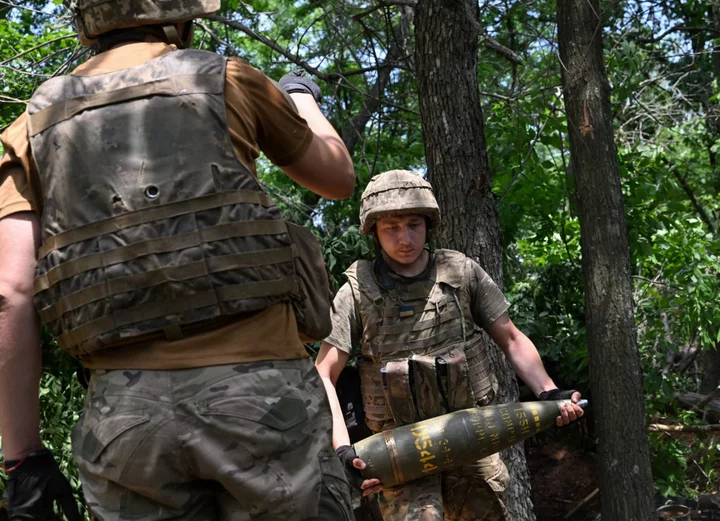
Ukraine Recap: Russian Defense Chief Plays Down Impact of Mutiny
Russian Defense Minister Sergei Shoigu said last month’s attempted mutiny by Wagner mercenaries failed because the country’s armed
2023-07-04 00:17
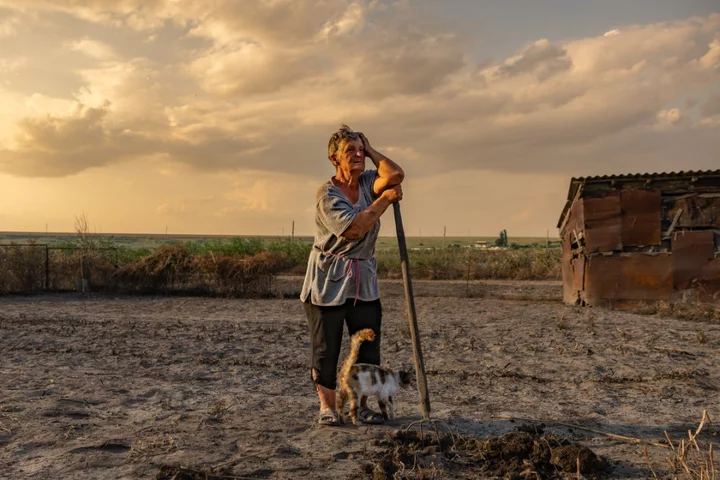
After the flood: The nightmare is just beginning for those left to rebuild after the Ukraine dam explosion
In a mud-soaked nightdress, the Ukrainian grandmother claws at the fetid water that has swallowed the steps down to her home in Kherson city. Frail and in shock, Antonia Shevchenko, 84 appears unaware of the futility of her attempts to try to drain the swamp drowning her house. Her daughter Svetlana, 64, marooned by the sweltering mud, tries to coax her to stop and calm down. Shelling roars in the background. It is the first time the pair have been back since they evacuated after the Nova Kakhokva dam blew up this month, unleashing the contents of one Europe’s largest reservoirs over southern Ukraine. The explosion - which Ukraine blames on Russia - sparked the worst ecological disaster on the continent in recent history and will likely impact global food security, according to the United Nations. In Kherson, the capital of the region, it killed dozens of people, submerged whole towns, drowned all the wildlife and turned this street into a canal. “We didn't even have time to get her clothes, we had to carry her in the slippers and nightie she is still wearing now,” says Svetlana in tears, as her confused mother repeats “It’s all just mud,” in the background. “It’s impossible to fix this. I feel nothing now. Everything is just empty inside. Now it’s all gone, we have nothing left," Svetlana adds. A few streets away Oksana Kuzminko, 70, who was also returning for the first time, picks her way through the devastation. “Welcome to zombie land,” she adds with a despairing shrug. Until recently the only way to navigate these streets was to steer a boat between the tops of the roofs of the submerged houses. Now the waters have receded, the terrifying scale of the damage and the work still to be done has been revealed. Sewage, mud, rubbish, dead animals, bits of masonry, and potentially land mines swirl together in the backyards of the partially collapsed houses. The area is still being pounded by Russian forces, stationed on the other side of the swollen banks of the Dnipro river. Anna Gatchecnko, 73, another elderly resident of this district, says the combination of flood waters and the war is “your worst nightmare”. “We survived the Russian occupation, the shelling and now this happened,” she says, wearing plastic bags she has tied to her feet in the toxic slush. “They took everything. My house, my belongings were the last things in this world that I had." The Kakhovka dam - essential for fresh water and irrigation in southern Ukraine - is located in a part of the Kherson region that Moscow illegally annexed in September and has occupied for the past year. The damage is so severe Ukraine has accused Russia of “ecocide” – believing Moscow’s forces blew it up in an attempt to prevent Kyiv’s troops from advancing in the south as they launched a counteroffensive. Moscow has vehemently denied the accusations and blamed Kyiv. Experts say the dam was so robustly built only an internal explosion could have caused such a catastrophic breach. The tearing floods have wiped out hundreds of towns and villages according to the United Nations, which has warned nearly a quarter of a million people have been left in need of drinking water. Downstream of the dam - towns and villages have morphed into polluted swamps where cholera has been detected. Upstream, the reservoir which once sustained swathes of agricultural land, has turned into a salty desert. Residents in those areas queue to get water from fire trucks under shelling. And the repercussions will be felt well beyond Ukraine’s borders, even potentially sparking global hunger. Ukraine - a major exporter of grains, oils and vegetables - was already struggling to export its harvest because of war. The ravages of flooding in one of the world’s most important breadbaskets will almost inevitably lead to lower grain exports, higher food prices around the world, and less to eat for millions in need. “The truth is this is only the beginning of seeing the consequences of this act,” Martin Griffiths, a United Nations aid official warned recently. It also raised fears about the stability Zaporizhzhia nuclear power plant, Europe’s largest, which relied on the waters of the now-dry Kakhovka reservoir to function. Rafael Grossi, head of the UN’s Atomic agency, which has unsuccessfully attempted to build a safety zone around the facility, was so concerned he travelled to the Russian-occupied plant. There he admitted it was "grappling with ... water-related challenges”. In Zaporzhizhia’s regional capital, Taras Tyshchenko, head of the Ministry of Health's Centre for Prevention and Disease Control, said if the Russians were capable of unleashing the waters over Kherson, they would have no qualms in taking out the nuclear power. After the dam's explosion, his health facility tests the air and waters across the region multiple times a day for radiation and contamination. So far they have detected cholera and remain on high alert for radiation. They have been through three rounds of training in the event there is a disaster at the nuclear power plant and have distributed potassium iodide tablets to those living within the danger zone. The damage from the destroyed dam is unfathomable, he says in front of the city’s main dock which is now dried out. The sweeping concrete jetty, which once hosted commercial water traffic, stoops forlornly over muddy puddles where his teams take water samples. “It could take well over a decade to fix the dam, refill the reservoirs and restore this region to normal," he adds grimly. "And that work can only really start after victory." In the interim cities, towns and villages along the Kakhovka reservoir will morph into wastelands if no solution is found. Deep fissures crisscross the cracked riverbeds where dead fish and molluscs slowly crisp in the sun. In one village, a forlorn fisherman drives a scooter across the desert scape in search of a pool of water. “Once the dam exploded we tried to build our own mini dams to try to retain some water, “ explains Vitaly Marozov, 29, who works at a 400-hectare farm producing vegetables and fruit just outside of the city of southern city Nikopol. He plays us a video of local volunteers building a makeshift barrier out of sacks and soil. “Now we are trying to dig wells but the water is salty," he adds. This is already destroying crops. Standing by a destroyed field of cabbages, dusted white with salt, he says they will be lucky if they can salvage a fifth of their total yearly yield. The damage he believes will cost their farm 22 million hryvnia, or around £500,000, and it will only get worse as the season progresses. “We are just one farm, this is the case all around this area. This will impact global food security unless someone does something drastic,” he continues. Back in the water-logged regions, volunteers deliver aid by boats to the communities now cut off from help. Others bring pumps to try to drain the pools of stagnant water from the worst-hit areas. But all it does is expose the irreparable damage done to the entire southern sweep of Ukraine. We find Olha Mosyk, 70, who was forced to swim to safety with a litter of newborn kittens, islanded by destruction in her home in the Mykolaiv region. Sodden muddy piles of dirt mark the remains of the walls of her house. “You need steel teeth to break Ukrainians. That won’t work on me,” she says, pulling up the remains of rotten potatoes from her destroyed field which is the same tyranny of blackened mud. “All we can do is try to pull ourselves together,” she adds with a pause. Back in Kherson city, Svetlana tries to comfort her mother Antonia who is on the cusp of a panic attack. “How do I feel? Crying all the time. My whole body is shaking,” the 84-year-old says faintly, her red floral nightie a flash of colour in the grey water. “It’s all flooded. My whole life is underwater.” Read More Zelensky accuses Russia of plotting ‘radiation leak’ attack at Zaporizhzhia nuclear plant Ukraine's president tells other countries to act before Russia attacks nuclear plant Ukrainian soldiers rescue Russian troops left to drown after Kakhovka dam destruction Russia-Ukraine war live: Moscow ‘arrests General Armageddon’ over Wagner rebellion Recapping the revolt in Russia, through the words of 4 presidents and a mutinous warlord
2023-07-03 23:21

BOE Newcomer Greene Warns Inflation Won’t Automatically Fall
The Bank of England’s incoming rate setter Megan Greene cautioned against complacency in the fight against inflation. “It
2023-07-03 21:45

European Stocks Muted After First-Half Gains; Energy Shares Rise
European stocks were muted on Monday following gains in the first half of the year as cyclical sectors
2023-07-03 21:20

Turkish State Banks Resume Supporting Lira as Rout Deepens
Turkey’s state-run banks re-entered the foreign-currency market on Monday, selling as much as $1 billion by midday to
2023-07-03 20:47
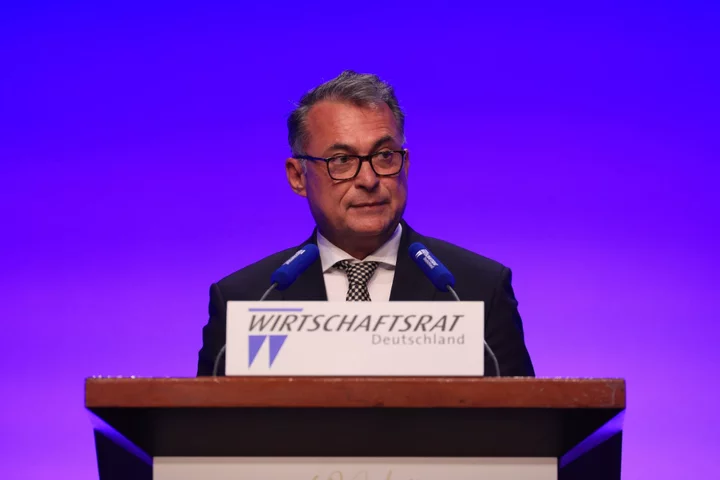
ECB’s Rate-Hiking Campaign Has ‘Some Way to Go,’ Nagel Says
The European Central Bank’s historic series of interest-rate increases isn’t finished yet as upside risks to the inflation
2023-07-03 20:29
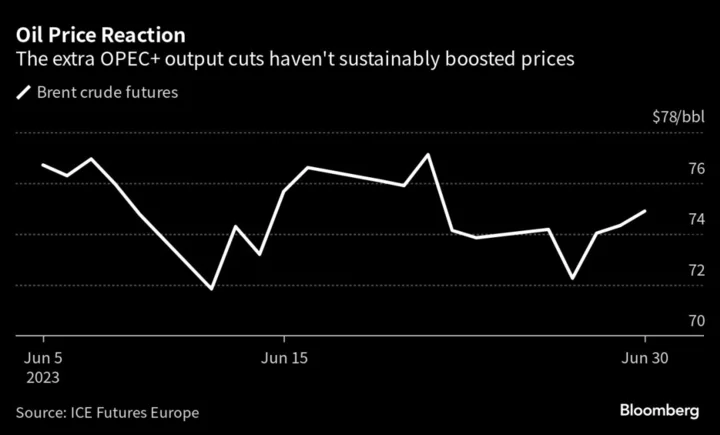
Saudis and Russia Extend Oil Supply Cuts, Bolstering Prices
Saudi Arabia will prolong its unilateral oil production cut by one month, keeping a lid on supply amid
2023-07-03 19:24
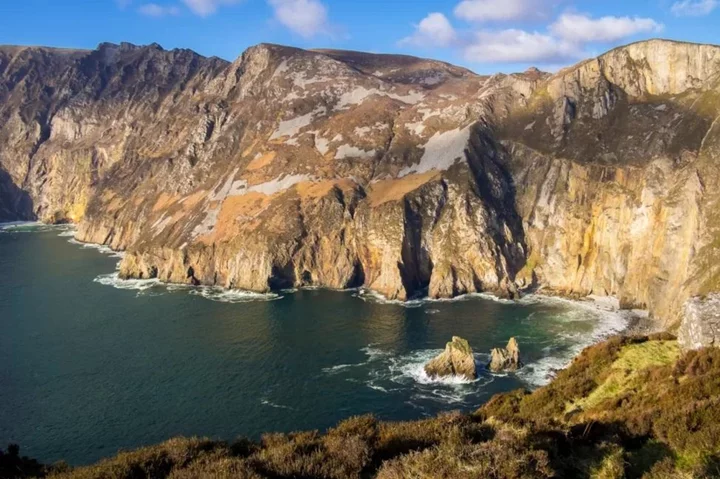
Body recovered at Slieve League in County Donegal
The sea cliffs were closed for most of last week as police investigated an alleged assault.
2023-07-03 19:20
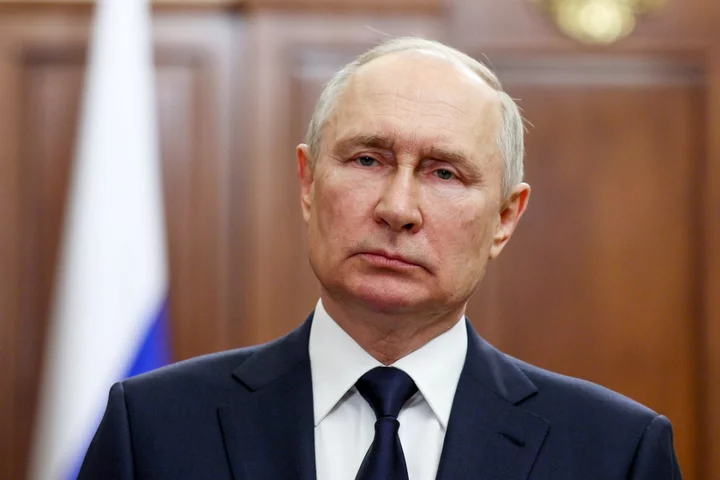
Ukraine-Russia war – live: Putin’s forces ‘suffer losses during heavy fighting near Bakhmut’
Ukraine’s forces have gained ground near Bakhmut amid “heavy fighting,” officials said on Monday. Deputy defence minister Hanna Maliar said that Russian forces were attacking in the Lyman, Avdiivka and Mariinka directions in the Donetsk region. “Heavy fighting is going on there now,” Maliar said on the Telegram messaging app. Ukraine had reclaimed nine square kilometres over the past week along the eastern front “as a result of improving the operational (tactical) position and aligning the front line”, Maliar said. In the south, Ukraine has regained 28.4 kilometres of territory, bringing the total area of re-captured territory along that front to 158.4 kilometres, Maliar added. Over the weekend, Russia said its forces had repelled Ukrainian attacks near villages ringing Bakhmut and in areas further south, particularly near the hilltop town of Vuhledar. They also reported success in containing Ukrainian troops in the northeast. It comes as Ukrainian writer and war crimes researcher Victoria Amelina has died after succumbing to her injuries from the missile attack on a Ukrainian pizzeria in Kramatorsk. The 37-year-old, among the dozens of civilian casualties in the Russian missile strike, had been admitted to a hospital in Dnipro last Tuesday. Read More Russia launches first drone strike on Kyiv in 12 days Why are Russian and Belarusian players allowed back at Wimbledon? Belarusian Aryna Sabalenka says she won’t discuss the Ukraine war while at Wimbledon A week after an armed rebellion rattled Russia, key details about it are still shrouded in mystery
2023-07-03 18:25
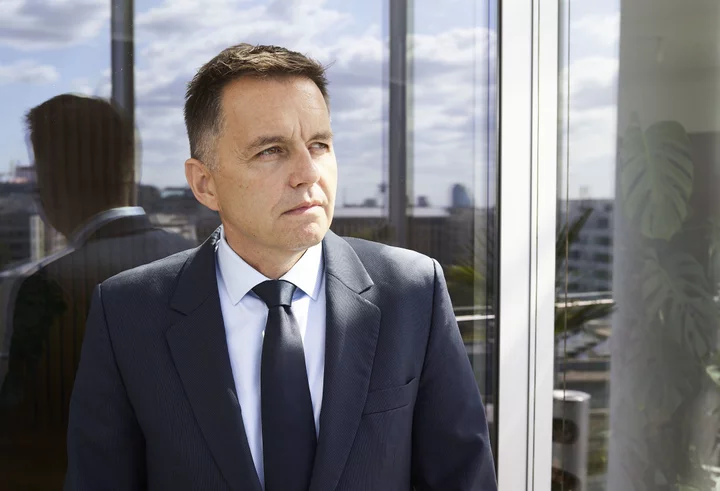
ECB’s Kazimir Stands Trial in Slovakia on Bribery Charges
The corruption trial of European Central Bank Governing Council member Peter Kazimir began on Monday, threatening embarrassment to
2023-07-03 17:51
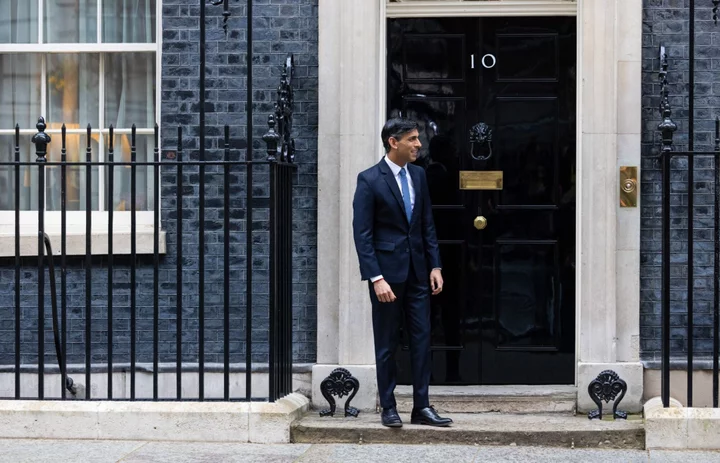
Sunak Faces Three Weeks of Danger in Bid to Revive Tories
Rishi Sunak faces an awkward three-week political test that is likely to have a lasting impact on his
2023-07-03 17:21
